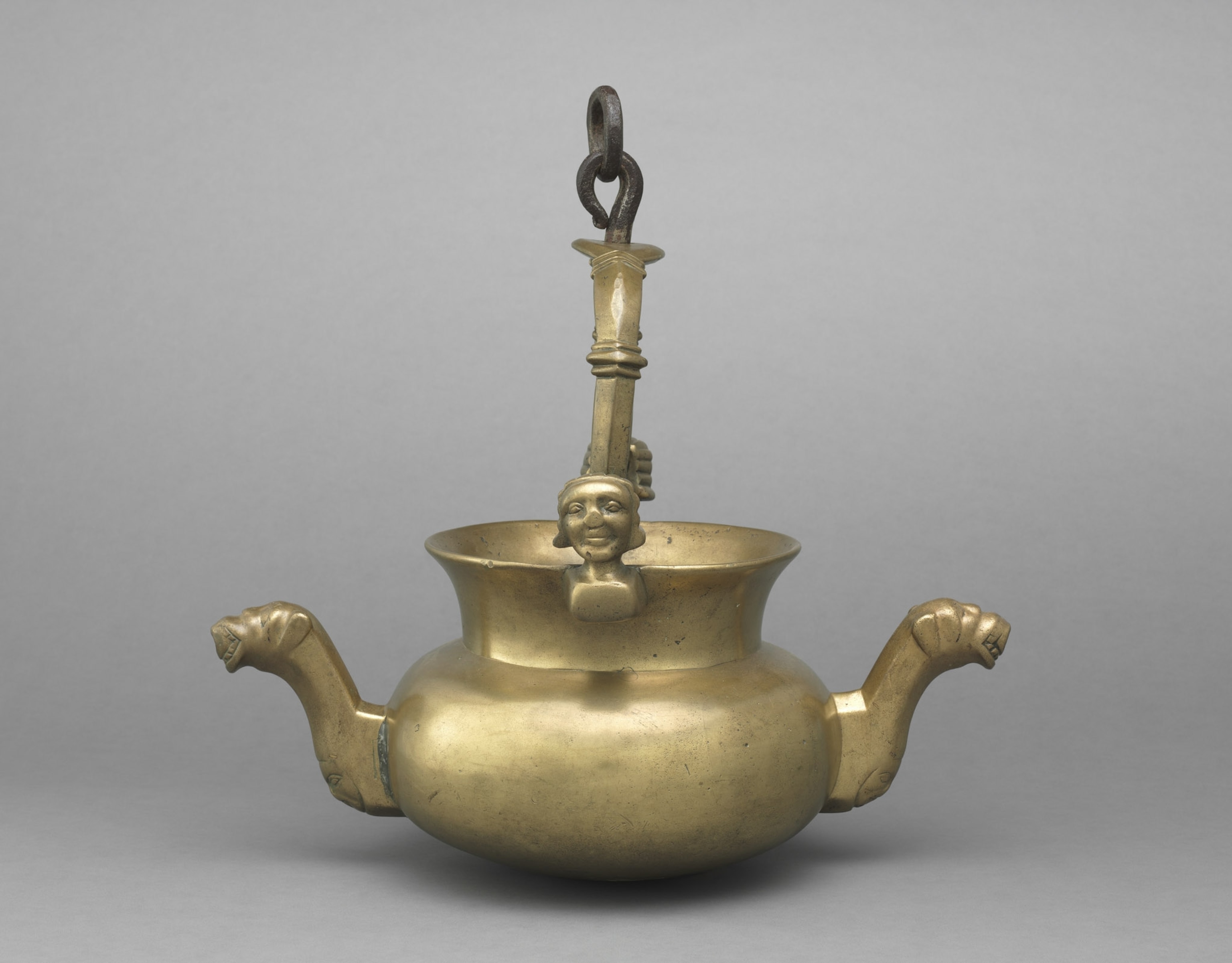Medieval elites used handwashing as a shrewd ‘power play.’ Here’s how.
The before-meal wash was an important ritual for peasants and nobility alike—especially since people often ate with their hands.

No everyday task has taken on more importance this past year than handwashing. From the beginning of the pandemic, when the Centers for Disease Control and Prevention (CDC) advised “cleaning hands in a specific way,” lathering and scrubbing for 20 seconds has become a ritual, especially when returning home after a foray into the coronavirus-plagued world.
It’s the sort of ritual that medieval Europeans would recognize, although for them it was often a more social exercise than we are currently allowed. People living in the Middle Ages are commonly assumed to have had poor personal hygiene, but in truth many were well-practiced in cleanliness. Born of necessity, handwashing evolved into a highly choreographed demonstration of power and wealth. It was a “sign of civility,” says Amanda Mikolic, curatorial assistant for the Department of Medieval Art at the Cleveland Museum of Art in Ohio. (Discover how pandemics changed medieval burial practices.)
Kings and peasants alike washed up before and after meals. Most people ate with their hands—cutlery was rare and food was often consumed using stale bread called trenchers. Washing away the day’s grime was necessary and a sign of respect for whoever was feeding you. "Let your fingers be clean, and your fingernails well-groomed," commanded Les Contenances de Table, a 13th-century medieval text on table manners.

Medieval nobility and clergy took hand and face washing to new heights, with the rituals around monarchs being especially elaborate. Those who dined with a medieval European king were greeted by minstrels playing beautiful music on a harp or vielle (a medieval ancestor to the violin) and ushered into a lavatory with “luxurious basins … fresh white towels, and scented perfumed water,” according to Mikolic. Surrounded by servants, guests cleaned their hands, taking great care not to sully the pristine towels. Women would have washed their hands before they arrived, ensuring that “when they blotted their hands on these white cloths, not a speck of dirt or soil would be there—proving their virtuous, clean nature.”
Once everyone was seated in the great hall, the king would enter. The guests would stand and watch as the king then washed his own hands. Only after the king had finished would everyone else take their seats. It was “a power play to show who’s in charge,” says Mikolic, “as most everything in the entire program was.”
Strict guidelines governed how the nobles ate, some of which would likely meet with CDC approval. Les Contenances de Table, as translated by Jeffrey Singman and Jeffrey Forgeng in their book Daily life in Medieval Europe, lists a whole range of dining rules:
“Once a morsel has been touched, let it not be returned to the plate.
Do not touch your ears or nose with your bare hands.…
It is ordered by regulation that you should not put a dish to your mouth.
He who wishes to drink must first finish what is in his mouth.
And let his lips be wiped first....
Once the table is cleared, wash your hands, and have a drink.”
Elaborate rituals required ostentatious tools. Crusaders brought luxurious Aleppo soap made from olive and laurel oils to Europe. Soon enough, the French, Italians, Spanish, and eventually the English all started making their own version of Aleppo soap with local olive oils rather than the smelly animal fat of centuries past. Perhaps the most well-known of these European versions is Spain's Castile soap, which is still made and shipped around the world today.
Ornate vessels such as aquamaniles (pitchers) and lavabos (essentially a hanging bowl with spouts) were filled with the warm, scented water used during handwashing. In the wealthiest households, servants would pour the fragrant water onto the hands of those dining. These receptacles were so prized that Jeanne d’Évreux, queen of France and wife to Charles IV, included several aquamaniles among the precious table decorations in her will.
But eventually handwashing began to fall out of practice. Many scholars blame the fork, which wasn’t commonly used until the 18th century. “The whole ritual nature around handwashing starts to fade when tableware starts to become more prominent, when households start having tableware for guests,” says Mikolic, “and then when you can actually eat while still wearing gloves.” (Modern table manners began in the Renaissance.)
It’s too early to say which pandemic-era rituals will stick with us. But today, long after aquamaniles and lavabos have gone out of fashion, handwashing can still be a way to show off one’s wealth. From hand-painted vessel sinks to costly soaps made with essential oils to plush Egyptian cotton towels, we continue to create luxurious rituals around washing our hands. Whenever she uses scented soaps, Mikolic says she’s reminded of the scented water of the Middle Ages. “I always chuckle.”